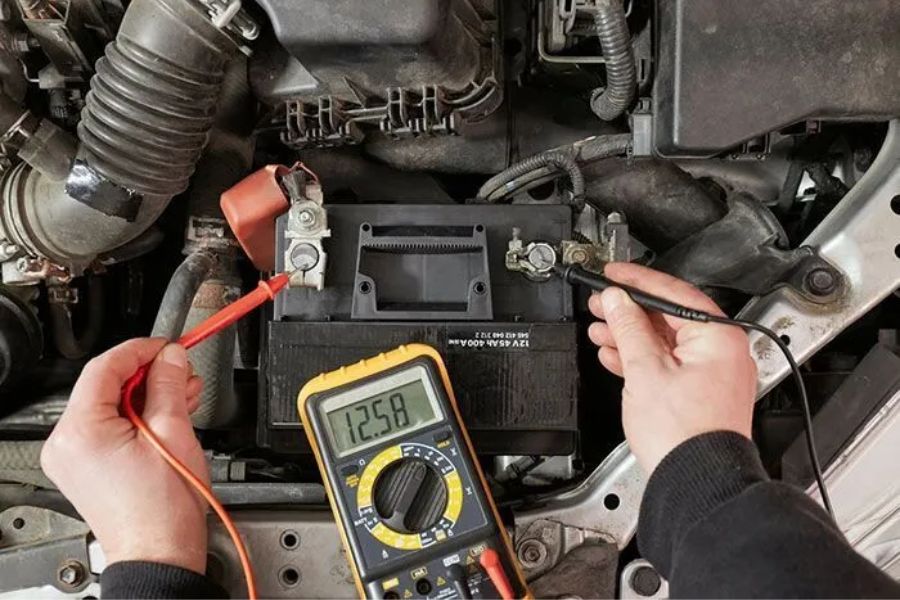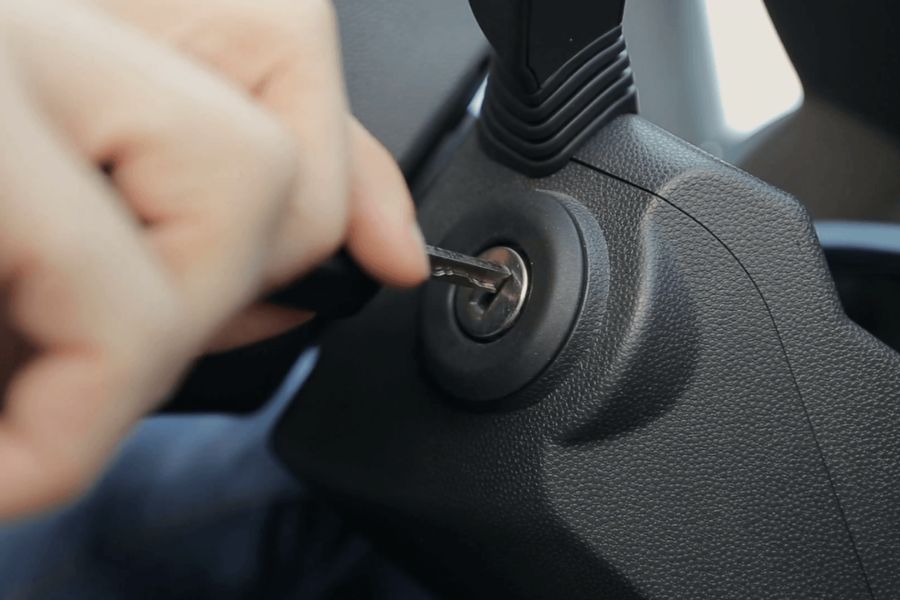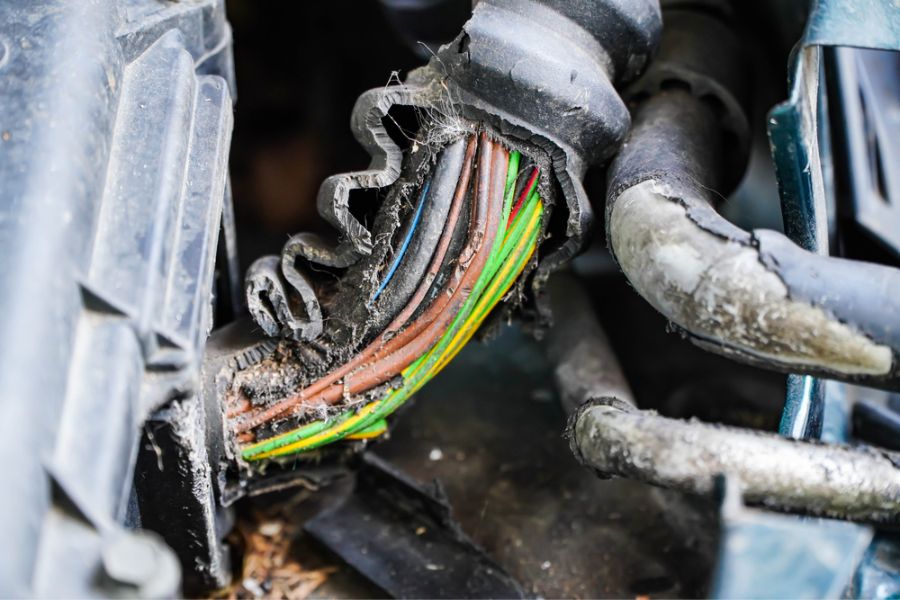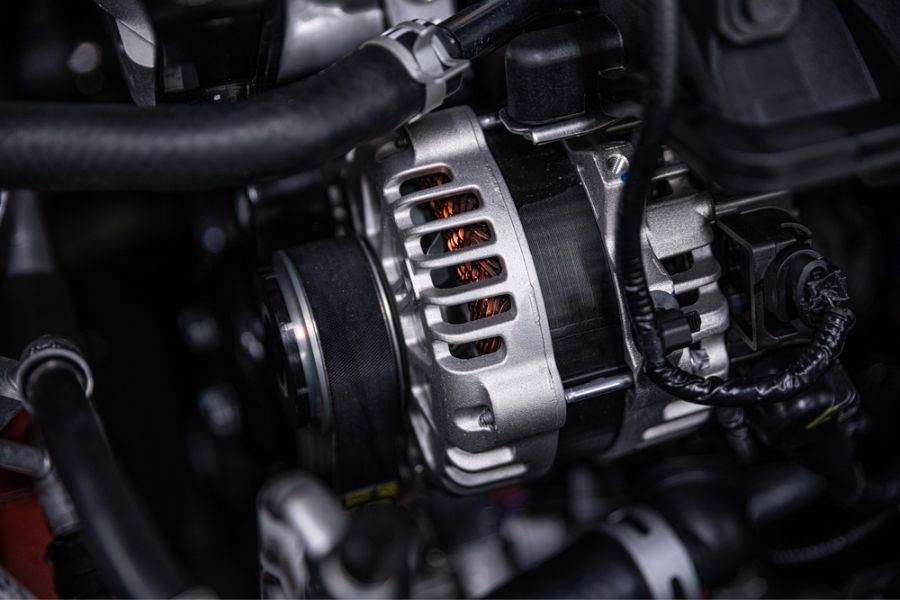A car that just won’t start sometimes is giving you a headache because it can mess up our daily schedules and cause us to miss meetings. We need to find other ways to get around in these situations.
Knowledge is super important because you can save time and money and drive more safely. For instance, keeping your battery and generator in good shape can keep you from losing power while you’re moving. Stopping could happen if the fuel system doesn’t work right, though. You will understand what’s going on.
If your car starts at times, we’ll explain what it implies in this blog post. Is it possible that the starting motor or battery is cracked?
What Does It Mean When Your Car Won’t Start Intermittently?

Some days it’s working, and other days it’s not. An ‘intermittent starting problem’ is the word we use to describe that. It’s as if your car is trying to hide from you. That’s bad news. A domino effect of issues has occurred. Damage to your battery, engine, or ignition system might result.
This can cost you a lot of money and might even shorten your car’s life. It can also make your car thirsty for fuel, which means more trips to the gas station. So, it’s better to find and fix the problem sooner than later.
If your car doesn’t start sometimes, don’t overlook it. Figure out the problem and know how it upsets your car. Such as, a dead battery might just need a jump-start or replacement, but a faulty starter or ignition issue can be more complex.
Now, not all problems need a mechanic. Sometimes, a quick DIY can do the trick. But if your car keeps playing hide-and-seek, it’s time to call a professional. Mechanics have the right tools and know-how to find and fix these secret codes. They can even spot other problems you might not see.
What Makes Your Car Start Only Sometimes?
Sometimes your car starts, sometimes it doesn’t. But it’s not doing it to annoy you. There’s always a reason. It could be a simple issue or a sign of a bigger matter.
It’s usually down to things like a bad ignition switch, rough weather, or a bug in the electrical system.

Bad Ignition Switch
Because it starts the engine and regulates the electrical system, the ignition switch is like the boss of your car. The engine and other components of your vehicle are roused to action when you turn the key. But if anything is amiss and your vehicle starts one second and then doesn’t the next, you should inspect the key switch to track down the cause.
The electrical contacts inside the ignition switch are perhaps worn out over time, thus, cause the car to start and stop working on and off. Or if you turn the key and the ignition switch doesn’t work, it might be because the key cylinder is broken.
Weather Can Be Tough On Your Car
Just like us, cars can feel the weather. It might not work as well in very hot or cold weather.
It is possible that your battery won’t have enough power to start the engine when winter rolls around. In addition, when the temperature drops, the engine oil gets stumpy, your car will have a hard time to start and turn over.
On the other hand, when it’s really hot, your fuel can start to evaporate and die out. Also, engine oil becomes fractured more quickly in high temperatures, so it loses some of its weight when it comes to lubricate engine parts.
Electrical Issues Can Cause Trouble
Your car’s electrical system is like its brain, since it controls and coordinates all of the car’s activities. It checks the engine and lighting to make sure they all operate together. However, your car may not start at the crucial moment if a delay arises, such as a dead battery or faulty wiring.

A weak battery, rusty battery terminals, or a broken alternator can all cause your car to delay starting.
- Car battery: The car battery brings the electrical power vital to starting the engine. If the battery is weak or old, it might be unable to hold on a sufficient charge to the starter motor
- Starter Motor: If the starter motor is faulty, it won’t turn the engine over, make it difficult to start the engine.
- Alternator Faults: The alternator charges the battery while the car is running. If it’s broken, the battery won’t recharge, sooner or later your car will not start.
- Loose or Corroded Wires: When the flow of electricity is disrupted due to corrosion on the wires or loose connections, the automobile may not start.
Regular Maintenance Can Help
Regular visits to the mechanic are necessary for your vehicle, just as they are for your health. Everyday check-ups and adapting issues when they’re small can rule out bigger trouble down the line. Keep your car happy, and it’ll keep you moving.
How To Check If Your Starter is Bad
The starter can cause your car’s intermittent starting dilemma. We can find out how to inspect your starter, identify a defective one, and assist it in any way we can.
Easy Steps to Check Your Starter
The car’s starter system is not too complex or deeply technical. With some key mechanical grasp and maybe some backing (such as a manual or instructional video), you can do a simple starter check on your own. To inspect your starter, you must first locate it, then check that the connections are clean and tight, and lastly search for obvious signs of wear or damage. Here’s a super easy guide:
- Make sure your car’s battery is fully charged. A weak battery can’t power the starter, right?
- Listen up when you turn the key. If it clicks, the starter could be bad.
- Watch your lights. If they dim when you’re trying to start the car, the starter might be hogging power.
- Give it a go in neutral. If it starts in neutral but is not in park, the starter might be the culprit.
- Look for a busted fuse. If the starter motor’s fuse is popped, the starter won’t behave.
These checks are pretty basic. If your car still won’t start now and then, you should get a pro to look at it.
How to Spot a Bad Starter
Knowing the signs that your car’s starter isn’t working right can save you a lot of trouble and keep your car from getting worse.
- A grinding noise when you try to start the car.
- Your car stalls a lot.
- You smell something smoky or burning.
- Your car only starts when it feels like it.
Why You Need a Mechanic to Look at Starter Problems
Even though these checks can help, starter problems can be delicate. Mechanics have cool tools and know a ton about cars. Some of these tools are state-of-the-art electrical system tests, multimeters, and diagnostic readers.
Mechanics have extensive knowledge of the many makes and models of vehicles, as well as the ins and outs of their starting mechanisms. They are masters in diagnosing and fixing starter difficulties.
Therefore, make an appointment with your neighborhood garage if your car occasionally won’t start. After they inspect your vehicle, they will tell you if it is safe to drive.
How to Tell if Your Car’s Starter or Solenoid Is Acting Up
Starters and solenoids today both play a big part in getting your car started, so it’s good to know a bit about them.

The Starter Solenoid: What It Is and What It Does
The starting solenoid, often called a starter relay, connects the battery to the starter motor in your car. A large burst of energy is sent to the starting motor when you turn the key, which is similar to directing the solenoid to erect that bridge. That’s the key to getting your motor running!
How We Figure Out if the Starter Solenoid Is the Problem?
Here’s a brief rundown of the steps we use to determine if the starter solenoid is at fault when your car won’t start:
- We start by taking a good look at the starter and solenoid. We’re probing for anything that looks wrong or out of place.
- Next, we run some tests to check the electricity flow. We’re making sure the solenoid is getting power when you turn your key.
- Sometimes, we might need to take out the starter and solenoid to do more tests. We might test the starter or check the solenoid’s continuity.
Conclusion
The ability to diagnose and repair issues before they escalate depends on your familiarity with the symptoms of a faulty ignition switch, starter, or battery.
Don’t overstate routine car inspections. Most initial difficulties can be stopped dead in its tracks by using them. You may save time and money by using their services to detect issues early on. You may drive carefree if you maintain your vehicle properly.
